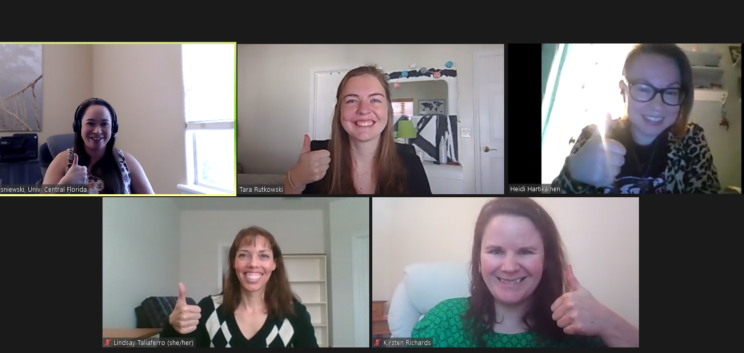Congratulations to STIR Lab student Tara Rutkowski on successfully defending her Honors Undergraduate Thesis! Tara’s thesis, titled “Family Communication: Examining the Differing Perceptions of Parents and Teens Regarding Online Safety Communication” presents a statistical analysis discovering what factors impact a teen’s and parent’s views on family communication on online safety and affect the differing perceptions of parents and teens on online safety. The thesis abstract is available below. We are very proud of Tara for successfully completing her thesis and wish her the best as she continues her undergraduate career.

Abstract: The opportunity for online engagement increases possible exposure to potentially risky behaviors for teens, which may have significant negative consequences (Hair et al., 2009). Effective family communication about online safety can help reduce the risky adolescent behavior and limit the consequences after it occurs. This paper contributes a theory of communication factors that positively influence teen and parent perception of communication about online safety and provides design implications based on those findings. Previous work identified gaps in family communication, however, this study seeks to empirically identify factors that would close the communication gap from the perspective of both teens and parents. I analyzed data from a survey of 215 teen-parent pairs with a cross-sectional design and examined the factors that contribute to increased family communication about online safety. For parents, active mediation, technical monitoring of their teens’ devices, and a perceived positive affect schedule of the teen were associated with higher levels of family communication. Our results were similar for teens, except that parental monitoring and the teen’s online safety concern were also positively associated with increased family communication, while restrictive mediation was associated with lower levels of family communication. A key implication of these findings is that teens do not want to be left alone, but desire active mediation and monitoring. Teens do not want technological based restriction. As the first study to explore specific mechanisms which may improve family communication between parents and teens regarding online safety, I am able to recommend design solutions that allow teens an active role in their own online safety and facilitate effective family communication from the perspectives of both parties by assisting parents to adopt active mediation techniques rather than developing technologies that encourage restrictive parenting. Many designs for parents and teen monitoring historically support a restrictive approach (P. Wisniewski et al., 2017). Rather than focus on parental control applications, I advance both analytical support for a more nuanced theoretical and practical applications.
